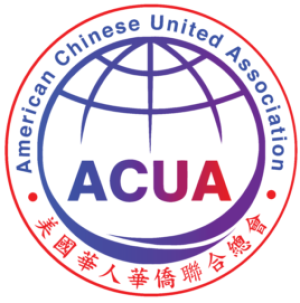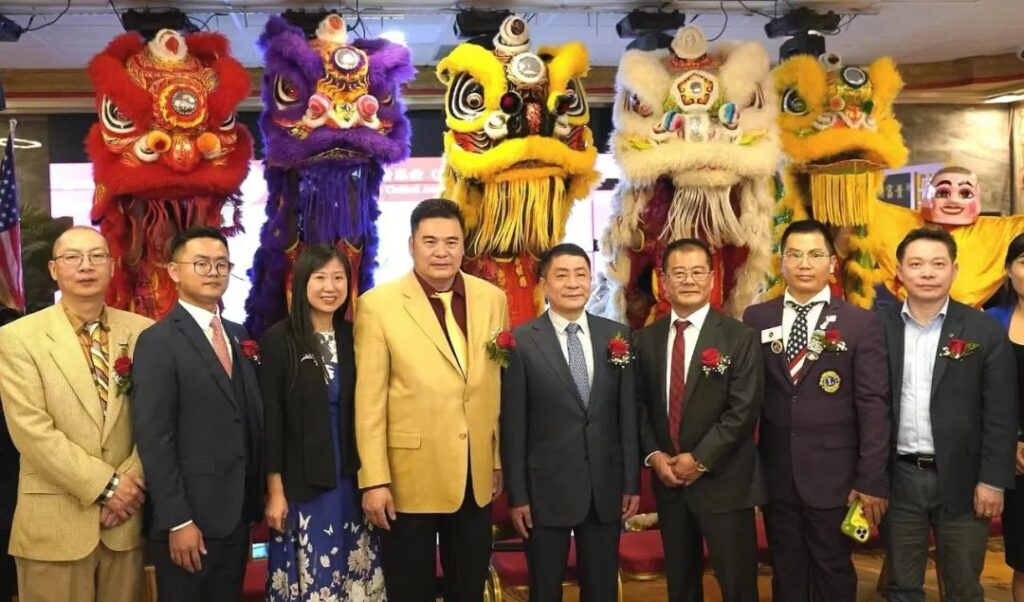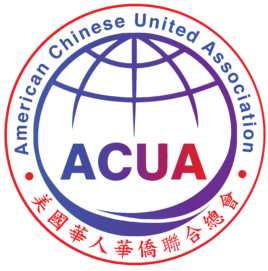On April 9, 2022, the inaugural celebration of the Florida chapter of the ACUA was grandly held. The first president, Mr. Lin Qichun, and the chairman, Mr. Kenny Tang, became an important role in the relay and conveyor of the Florida chapter of the Association.
Alex, a reporter, interviewed Mr. Kenny Tang, co-chairman of ACUA and chairman of the Florida chapter of the ACUA. He said that the Florida chapter will adhere to the aim of the ACUA: “to build consensus, work together, integrate into the mainstream, and safeguard rights and interests”; shoulder the responsibility of raising
awareness of ethnic survival crisis, establishing a common Chinese platform for ethnic interests, encouraging Chinese to participate in politics and deliberation, and cultivate the sense of social responsibility and mission of Chinese teenagers.
Interview of Chairman of the Florida chapter of the ACUA, Mr. Kenny Tang
Q: Can you briefly describe one of your main experiences in the United States?
A: I immigrated to the United States in 1989 and lived in New York and Miami. I have experienced the survival and entrepreneurial struggles of the vast majority of new immigrants.
For more than 30 years, the United States has given me a very intuitive feeling that opportunities are equal. As long as you work hard and be positive and enterprising, you will always succeed.
However, I also realize that the starting line also determines how far and fast you can go. It is reflected in that when others are considering how to become a business executive or run for political leaders, we are still struggling with the language barrier, which will become a relatively vulnerable group to some extent. Recently, joining the ACUA as the co-chairman and serving as the chairman of the Florida chapter, we are also looking at helping the second generation of Chinese integrate into master.
Q: As the chairman of the Florida chapter, what considerations and ideas do you have?
A: I very much agree with the aim and concept of ACUA. The Florida chapter and the General Association are united and cooperated together because they agree with many conference concepts.
In addition, I think it is more important how to effectively implement these concepts in action.
For the Florida chapter, President Lin Qichun and our team have a common starting point, that is, to pass on the resources and contacts accumulated by our generation for decades to our second generation of Chinese, so that they can stand on our shoulders, avoid the detours we have taken, and improve the social land of our whole ethnic group in the United States.
Q: When it comes to cultivation and portability of the second generation of Chinese, what specific methods do you have?
A: Regarding the support and cultivation of the second generation of Chinese, the chapter’s main tasks are summarized as follows:
First, at the conference established by the chapter, we invited nearly 30 Chinese teenagers to participate and had a direct dialogue with dozens of mainstream political and business guests attending the meeting. Everyone performed very well, created a positive and good atmosphere, and united a large number of Chinese young people.
Second, after learning about the election director of the local campus in April this year, I actively contacted the candidates who were in the election. After understanding the election process and requirements, I highly encouraged Chinese to participate in the election.
We mobilized and found suitable candidates one by one to encourage them to participate in the work of government departments. Our organized and collective measures to encourage political participation have caused a sensation in the community. This is the beginning when our South Florida group took the lead in encouraging and supporting Chinese to participate in politics. I believe that in the future, more and more Chinese will stand up to participate in the election and serve all communities.
Thirdly, on June 15, I led several young people to visit Robin Bartleman’s office, a Florida House of Representatives member, a guest at our founding meeting. IN her office, we had a pleasant conversation. During the conversation, Lilian Coms, a Filipino-American young man from our team who graduated from the political/business major at the Florida International University (FIU), was encouraged by a member of the Congress to join the congressman’s office as an assistant. Senator Robin was very happy and recommended him to some state-level network, which is a direct channel for her to work in business or politics in the future.
During the exchange that day, Congressman Robin also introduced a House of Representatives specializing in youth entrepreneurship to connect with our ACUA to further discuss ways and means to pay attention to and fund second-generation entrepreneurship in China. In the future, she is very willing to participate in any future activities on youth growth, development and education.
Q: What inspiration did you gain from visiting the state legislators?
A: Through this visit, I think we should make full use of the advantages of the American system, social resources, and promote our second generation to stand out in the mainstream society.
I also believe that the Chinese should be more aware that local elected officials, supported by voters in the region, are representatives who accept people’s advice and respond to their opinions.
Chinese communities in various places should have regular contact with elected parliamentarians at all levels, work together to promote various community activities, improve the sense of existence of the Chinese community, and become the main force for developing a harmonious life in multi-ethnic communities.
Q: As the chairman of the Florida chapter, what is your focus?
A: The so-called title and responsibility, everyone’s energy and time are limited. For the position of the Florida chapter of the ACUA, I sincerely hope to integrate the human resources of our ACUA team. The personnel of the Association, other state chapters and the Florida chapters will work together to generate more interaction, and cooperate in business, politics, community services and other aspects.
Participation in politics and deliberation is the basis for Chinese to improve their social status. It is related to the living environment of Chinese in the United States, and it is the responsibility and obligation of every Chinese. Participating in politics requires a lot of financial support and selfless services. Without the support of a solid economic foundation, it is a little impractical to talk about politics. Only when the Chinese community works together and contributes selflessly can it produce the best results.
I believe that with the leadership of the General Association and the sincere cooperation of our chapter team, we will soon explore a replicable successful model to contribute to our Chinese community. I am very optimistic about this regard.


